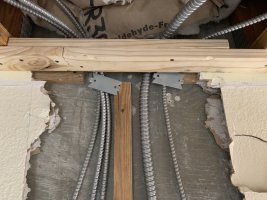jar546
CBO
I take umbrage with you characterization of multiple-discipline inspectors as not qualified. I am one. I work with several. While I lack the breadth of electrical code knowledge that you possess, I can hold my own for what I am called to accomplish. You’re in the wrong forum to be throwing stones at inspectors.
You can take umbrage all you want. By your own admission and my own professional experience, we are not as competent in all disciplines as someone who is a specialist in that field. OK, for single family homes, a multi-discipline inspector can certainly "hold their own" but still not to the level of a specialist that only does one discipline. No way, no how.
I personally hold 16 certification with the ICC and have since 2009. Big deal, I am good at taking tests and know how to use a book. Yes, I have experience in construction with framing and remodeling and especially electrical, but not plumbing or mechanical and when you get into residential generators, more complicated services and commercial or industrial projects, that is where the difference starts to take place.
I have extensive electrical experience as an electrician from the most basic residential to the more complex industrial motor controls and large 14,400 transformers and switchgear. When I had to do it all as a multi-discipline inspector I lost my edge with electrical and knew I was limited with mechanical because I never had experience doing the job. When you arrive do to a plumbing, mechanical, electrical and structural inspection on one jobsite, how do you not get sidetracked?
I am a much, much better electrical inspector now that I am only doing electrical. The problem with multi-discipline inspectors is that they don't know what they don't know and tend to focus only on what they are familiar with. Electrical, for example can be extremely complicated at times, especially since not every single thing the electrician is going to do is in the approved plans. So yeah, you might be a great multi-discipline inspector or 'jack of all trades' but maybe only a 'master of one'

